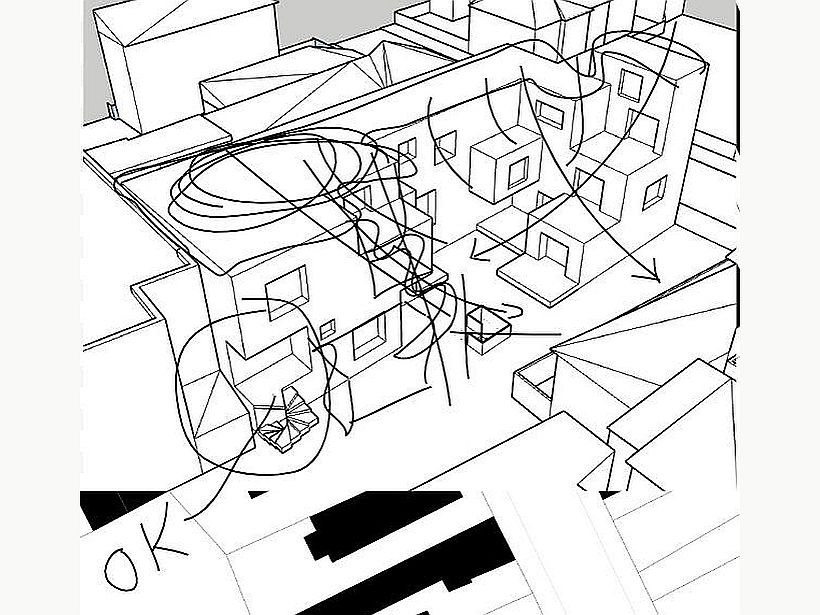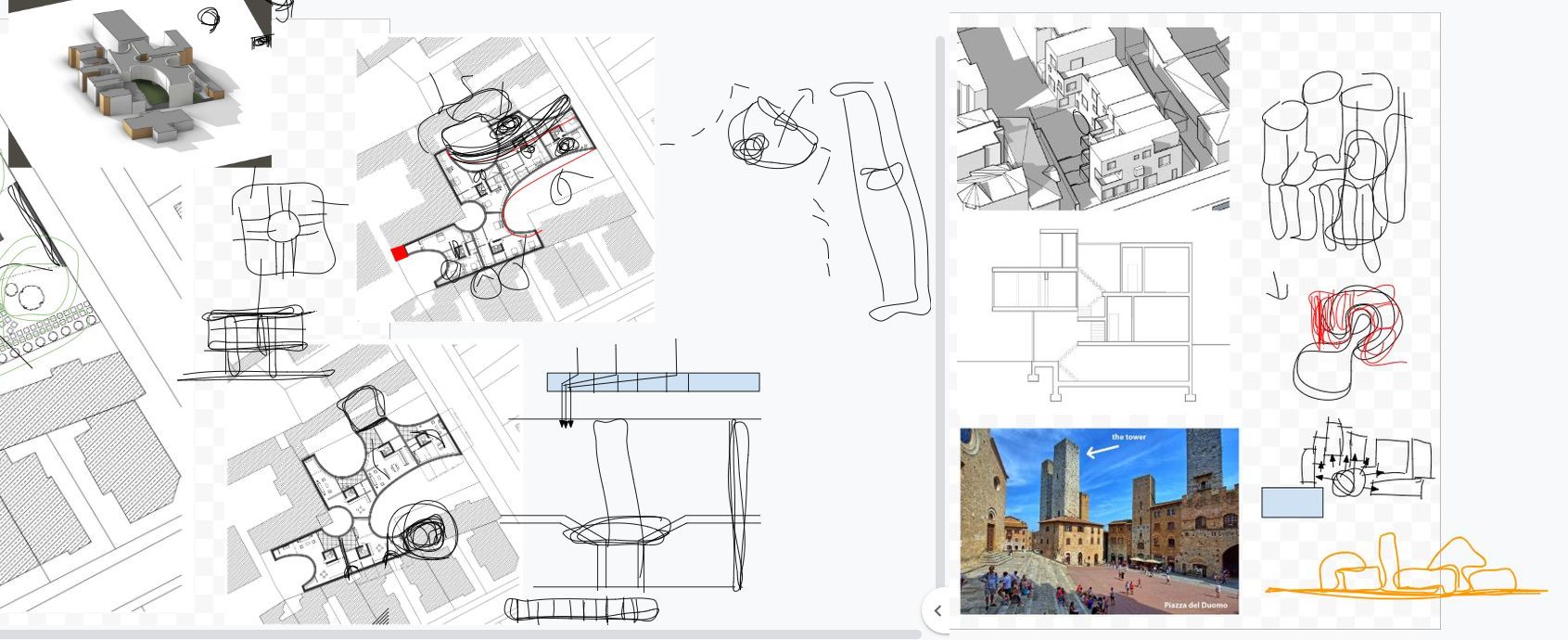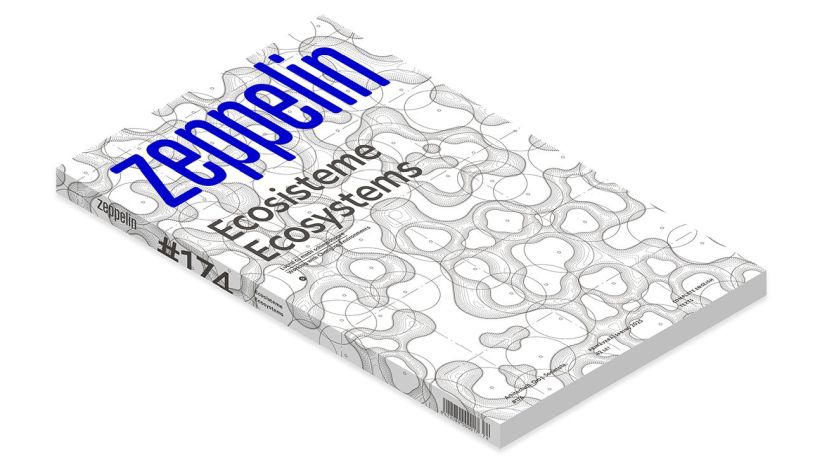Text: Ștefan Ghenciulescu
Learn as you go
There is fear and sadness, feelings that all of us are experiencing. But there is also enthusiasm (a lot of it) and competence (more or less of it). Balkan-like bricolage and makeshift online solutions.
For our first online workshop, our students, Mihnea Simiraș, Ilinca Rădulescu, and I did our best to preserve the core elements of the architecture workshop: the dialogue around the table full of drawings, the claims and counterclaims, the sketches in the margins. With our skills combined, we improvised a mix of Skype audio and uploading information and drawings to Google Drive, followed by live sketching on shared documents and holding the sketches to the camera or uploading photos of them straight to the group.
Some people at our school claimed to have done it better and faster—I did appreciate my colleague Ionuț Anton’s makeshift phone holder that allowed him to film himself drawing in the sketch notebook on the table. Others seemed to struggle with technology more than we did.
After a few weeks of experimenting, we can fairly say that:
Going digital is phenomenal…
There is no denying that we have been greatly underusing the Internet in our architecture workshops. In this sense, this is a very useful exercise, and we are sure to keep a lot of things in the post-Coronavirus times.
This might sound trite but we all got a better grasp of how the online has gone beyond being merely indispensable, it has become embodied to the point where the Internet is no longer as much a tool as an extension of our bodies. But this only applies to the more privileged of us—in today’s crisis, compared to those who cannot work remotely, the doctors, for instance, whom I salute; and beyond today’s crisis, compared to those who lack resources—thinking here of the many Romanian village schools that lack even basic sanitary facilities. Going digital is phenomenal, while at the same time very unfairly distributed.
…but not enough.
On the other hand, to those who dream of a brave new post-pandemics world where we will do everything remotely, education and architecture included, I tell them: not so fast. Without physical contact, everything turns into a substitute. Like the emigrant families who, for lack of a better solution, use Skype to keep in touch with their loved ones back home.
Our magazine and an assortment of other projects are almost entirely done online. Because the nature of the work and the cohesiveness of our team allow for it. But the current situation made me realize how much I missed my colleagues and even those rare but crucial meetings in that humble analogue world. When it comes to school however, and especially architecture school, things couldn’t be more different. Direct contact, subtle messages, a good reading of feedback and response to feedback, the half smiles…. even the furtive looks at a colleague’s drawing board and the background noise, they can all build a parallel workshop where students learn from each other. Not to mention how much of the message can get lost in online communication, how you can misread agreement and disagreement with your statements, or how no 3D model can replace the physical model that you build with your own hands, getting to look at it from all sides.
Being physically together is crucial: looking at how our profession is practiced, it strikes me that even huge architectural offices, with dozens of agencies in many countries, provide each of their offices with a conference table—or, less pretentious, a table for discussions. I have seen very small architectural offices, often without a kitchen and with a shared bathroom, which still had their coffee table for discussions.
Together
Once we are out of these particularly dark woods, the architect’s profession will more likely develop a mix or a marriage of the computer and the pencil, of the videoconference, VR, holograms and what not and physical contact and working side by side.
This being said, we miss both our fellow professors and our students at the Ion Mincu University—students who proved very brave and responsible, who were fast to learn to get by on their own, to take faster and firmer decisions, to increasingly do without us. We can only hope that they will still have us back. We are surely looking forward to seeing them in real life, not only on a screen.
*workshop in the coronavirus time. None of our sketches will ever win a prize for architectural presentation




